Mindfulness Retreats: A Path to Inner Peace
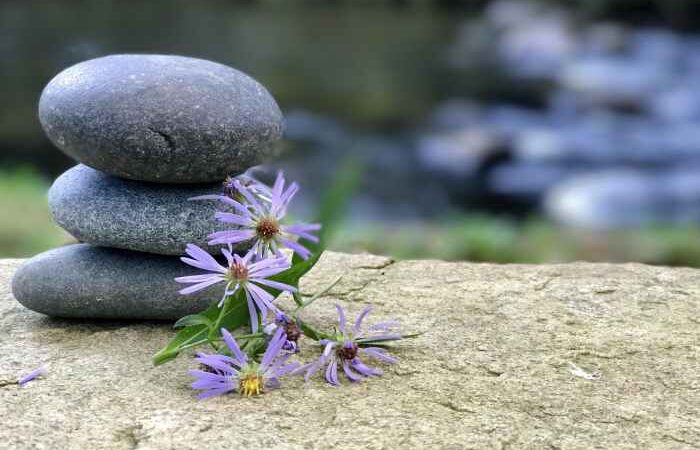
Mindfulness retreats offer a unique opportunity to step away from the daily grind and delve into the depths of your own mind. These retreats provide a sanctuary for cultivating mindfulness, a state of present-moment awareness that can transform your relationship with yourself and the world around you.
Imagine yourself surrounded by nature, engaging in practices that promote relaxation and self-discovery. You might find yourself participating in guided meditations, gentle yoga sessions, or mindful walks, all designed to help you connect with your inner self and cultivate a sense of peace and tranquility.
Mindfulness retreats are not just about escaping the every day; they are about learning tools and techniques to bring mindfulness into your daily life, fostering a deeper sense of well-being.
What are Mindfulness Retreats?
Mindfulness retreats are immersive experiences designed to cultivate mindfulness, a state of present-moment awareness without judgment. These retreats offer a structured environment to deepen your understanding and practice of mindfulness, leading to various personal and psychological benefits.
Benefits of Attending a Mindfulness Retreat
Attending a mindfulness retreat can significantly enhance your well-being. The benefits include:
- Reduced Stress and Anxiety: Mindfulness practices like meditation and deep breathing help regulate the nervous system, leading to a decrease in stress hormones and a sense of calm.
- Improved Focus and Concentration: Mindfulness training strengthens attention and focus, allowing you to be more present in your daily activities and enhance your cognitive abilities.
- Increased Emotional Regulation: By becoming more aware of your emotions, you gain greater control over your reactions, fostering emotional resilience and reducing reactivity.
- Enhanced Self-Awareness: Mindfulness helps you understand your thoughts, feelings, and bodily sensations, leading to a deeper understanding of yourself and your motivations.
- Improved Sleep Quality: Mindfulness practices can promote relaxation and reduce racing thoughts, leading to better sleep quality and improved overall health.
Types of Mindfulness Retreats
Mindfulness retreats come in various forms, catering to different preferences and needs. Some common types include:
- Silent Retreats: These retreats emphasize silence and introspection, providing an environment conducive to deep meditation and self-reflection. They often involve periods of extended silence, guided meditations, and individual practices.
- Yoga Retreats: Combining mindfulness practices with yoga, these retreats offer a holistic approach to well-being. They typically include daily yoga sessions, meditation practices, and opportunities for relaxation and rejuvenation.
- Meditation Retreats: These retreats focus on various meditation techniques, including mindfulness meditation, loving-kindness meditation, and walking meditation. They provide a structured environment to learn and deepen your meditation practice.
- Mindfulness-Based Stress Reduction (MBSR) Retreats: Based on the MBSR program developed by Jon Kabat-Zinn, these retreats incorporate mindfulness meditation, gentle yoga, and body scan practices to reduce stress and enhance well-being.
The Experience of a Mindfulness Retreat
A mindfulness retreat offers a unique opportunity to step away from the demands of daily life and delve into the practice of mindfulness. It provides a structured environment designed to cultivate awareness, reduce stress, and promote inner peace.
Typical Schedule
Retreat schedules vary depending on the specific program and location. However, a typical mindfulness retreat schedule often includes a combination of guided meditation sessions, mindful movement practices, group discussions, and periods of silence and solitude.
- Morning: The day typically begins with a silent meditation session, followed by a light breakfast. This sets the tone for mindful awareness throughout the day.
- Mid-morning: A variety of activities may be scheduled, including yoga, mindful walking, or guided journaling exercises. These activities encourage physical and mental engagement with the present moment.
- Lunch: Lunch is often a communal meal, providing an opportunity for mindful eating and conversation with fellow participants.
- Afternoon: The afternoon may feature workshops, talks, or individual reflection time. This allows for a deeper exploration of mindfulness concepts and personal insights.
- Evening: The day concludes with an evening meditation session, followed by dinner and a period of relaxation. This promotes a sense of calm and prepares the mind for a restful night’s sleep.
Activities and Practices
Mindfulness retreats incorporate various activities and practices to cultivate mindfulness and promote well-being. These practices are designed to help participants develop a deeper understanding of their thoughts, feelings, and sensations.
- Meditation: Meditation is the cornerstone of mindfulness retreats. Guided meditation sessions provide structured practice in focusing attention on the present moment, and observing thoughts and feelings without judgment.
- Yoga: Yoga combines physical postures, breathing techniques, and meditation to enhance flexibility, strength, and mental clarity. It promotes body awareness and cultivates a sense of inner balance.
- Mindful Movement: Mindful movement practices, such as walking meditation or gentle stretching, encourage awareness of the body in motion. They help participants connect with their physical sensations and cultivate a sense of grounding.
- Nature Walks: Spending time in nature is a powerful way to engage with the present moment. Guided nature walks invite participants to observe the natural world with heightened awareness, fostering a sense of appreciation and connection.
- Journaling: Journaling provides a space for reflection and self-exploration. Participants may be encouraged to write about their experiences, insights, and challenges, fostering self-awareness and emotional processing.
Silence and Solitude
Silence and solitude are integral components of a mindfulness retreat. These periods provide opportunities for deep introspection, allowing participants to connect with their inner selves without external distractions.
“Silence is a powerful tool for cultivating mindfulness. It allows us to step back from the constant chatter of our minds and connect with the present moment.”
Silence can be challenging at first, as it can bring up feelings of discomfort or anxiety. However, with practice, it becomes a valuable tool for reducing mental noise and cultivating a sense of inner peace.
Choosing the Right Mindfulness Retreat: Mindfulness Retreats
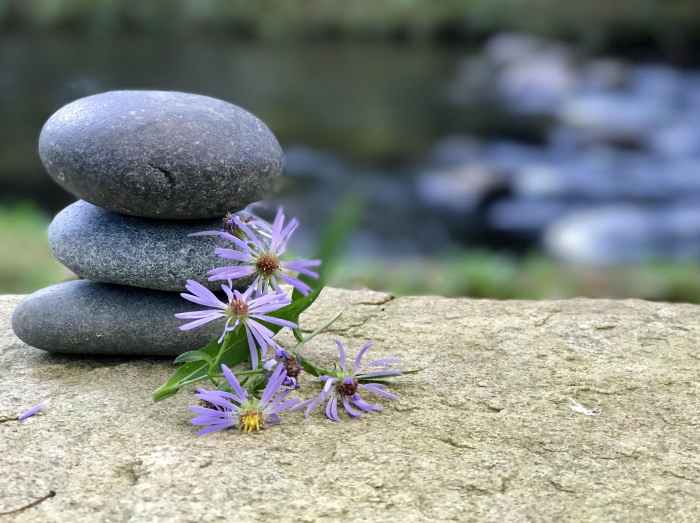
Embarking on a mindfulness retreat is a wonderful way to cultivate inner peace, reduce stress, and gain a deeper understanding of yourself. However, with numerous retreats available, choosing the right one can feel overwhelming. This section will guide you through key factors to consider when selecting a retreat that aligns with your needs and aspirations.
Factors to Consider When Choosing a Retreat
When selecting a mindfulness retreat, it is essential to consider several factors to ensure the experience is enriching and aligns with your goals. These factors include:
- Location: The location of the retreat can significantly influence the overall experience. Consider whether you prefer a tranquil setting amidst nature, a bustling city, or a secluded island. The ambiance of the surroundings can impact your level of relaxation and focus.
- Duration: The duration of the retreat is a crucial factor, depending on your available time and desired level of immersion. Shorter retreats, lasting a few days, offer a taste of mindfulness practices, while longer retreats provide more in-depth exploration and integration.
- Cost: Mindfulness retreats vary in cost, depending on factors such as location, amenities, and the experience of the teachers. Set a budget beforehand and research retreat options within your price range.
- Style: Mindfulness retreats encompass various styles, each emphasizing different practices and approaches. Consider whether you prefer a retreat focused on meditation, yoga, walking meditation, or a combination of these practices.
- Teacher: The teacher’s experience, expertise, and teaching style can significantly influence your retreat experience. Research the teacher’s background, qualifications, and reviews to ensure they resonate with your values and learning style.
Tips for Researching and Finding Reputable Retreats
Finding a reputable mindfulness retreat requires careful research and consideration of various factors. Here are some tips to help you in your search:
- Online Resources: Utilize online platforms dedicated to mindfulness retreats, such as websites, directories, and review sites. These resources provide information about various retreats, including their offerings, pricing, and testimonials from past participants.
- Word-of-Mouth: Seek recommendations from friends, family, or colleagues who have attended mindfulness retreats. Their firsthand experiences can offer valuable insights and help you narrow down your search.
- Contact Retreat Centers: Directly contact retreat centers you are interested in to inquire about their offerings, schedule, and any specific questions you may have. This allows you to engage with the center staff and gain a better understanding of their approach.
- Read Reviews: Explore online reviews from previous participants to gain insights into the retreat experience, including the teacher’s style, the quality of the accommodations, and the overall atmosphere.
- Check Certifications: Look for retreat centers or teachers with relevant certifications or affiliations with reputable organizations. This can assure their qualifications and commitment to ethical practices.
Setting Intentions and Expectations
Before embarking on a mindfulness retreat, it is essential to set clear intentions and expectations. This involves reflecting on your motivations for attending the retreat and what you hope to gain from the experience.
- Define Your Goals: Identify your specific goals for the retreat. Are you seeking stress reduction, increased self-awareness, or a deeper understanding of mindfulness practices? Having clear goals will help you choose a retreat that aligns with your aspirations.
- Embrace Openness and Curiosity: Approach the retreat with an open mind and a willingness to explore new perspectives and experiences. Mindfulness is a journey of self-discovery, and embracing curiosity can enhance your learning and growth.
- Manage Expectations: Be realistic about what you can achieve during the retreat. Mindfulness is a lifelong practice, and a retreat provides a foundation for cultivating these skills. Embrace the process and allow yourself to learn and grow at your own pace.
The Benefits of Mindfulness Retreats
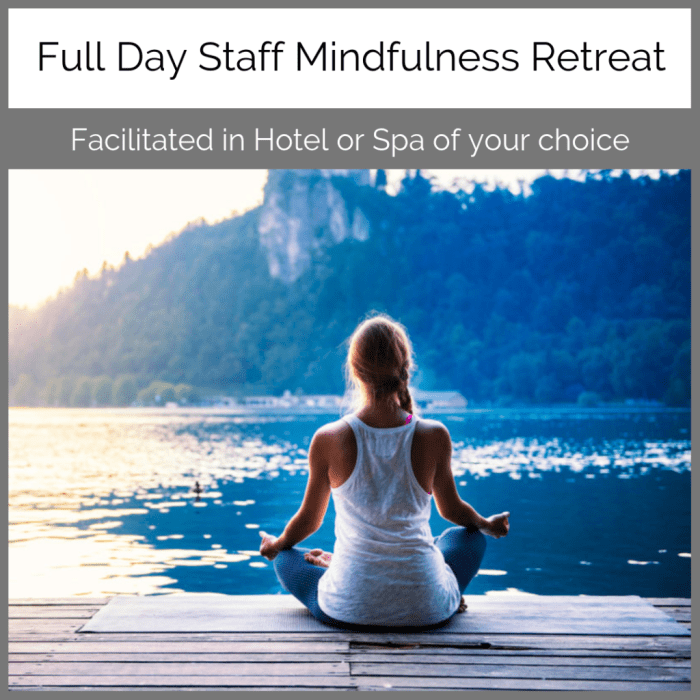
Mindfulness retreats offer a unique opportunity to step away from the daily grind and cultivate a deeper connection with yourself. These retreats provide a structured environment for practicing mindfulness, a powerful technique that can profoundly impact your mental and physical well-being.
Reduced Stress and Anxiety
Mindfulness practices have been scientifically proven to reduce stress and anxiety levels. Retreats provide a sanctuary where you can engage in mindful activities like meditation, yoga, and nature walks, allowing you to disconnect from the stressors of everyday life. These practices help calm the nervous system, reduce cortisol levels, and promote a sense of relaxation and peace.
“Mindfulness is simply being aware of what is happening in the present moment without judgment.”
Jon Kabat-Zinn
Improved Focus and Concentration, Mindfulness retreats
In today’s fast-paced world, it’s easy to feel overwhelmed and distracted. Mindfulness retreats provide an opportunity to cultivate focus and attention. Through regular meditation and other mindfulness exercises, you can train your mind to become more present and less reactive to distractions.
This enhanced focus can translate into improved productivity, creativity, and overall cognitive function.
Enhanced Self-Awareness
Mindfulness practices foster a deeper understanding of your thoughts, feelings, and bodily sensations. Retreats provide a safe and supportive space to explore your inner world without judgment. By observing your thoughts and emotions without getting carried away by them, you can gain valuable insights into your patterns and develop greater self-compassion.
Emotional Well-being
Mindfulness retreats can significantly enhance your emotional well-being. By learning to observe your emotions without getting caught up in them, you can develop greater emotional regulation. Retreats often incorporate practices like journaling, mindful movement, and group discussions, which provide opportunities to process and release emotional burdens.
“Mindfulness is not about trying to stop thoughts, it’s about creating a space for them to be.”
Eckhart Tolle
Examples and Testimonials
- A study published in the Journal of Consulting and Clinical Psychology found that mindfulness-based stress reduction (MBSR) was effective in reducing anxiety and improving mood in individuals with generalized anxiety disorder.
- Many retreat participants report experiencing a profound sense of peace and clarity after their retreat. One participant shared, “I felt so much lighter and more connected to myself after the retreat. I was able to let go of a lot of stress and anxiety that I had been carrying around for years.”
Mindfulness Practices for Daily Life
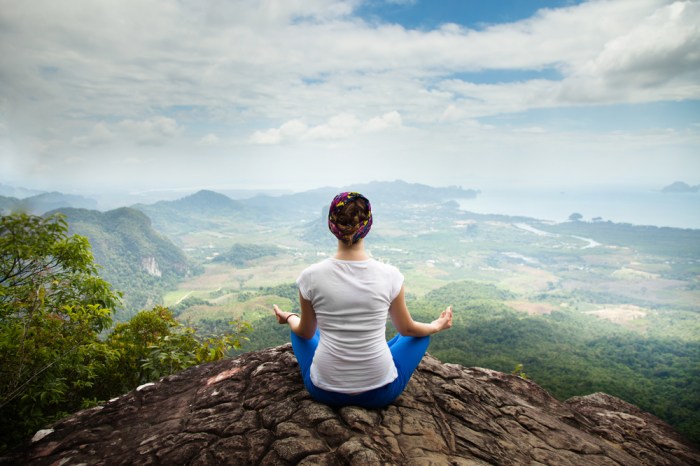
Mindfulness is not just a practice for retreats; it’s a powerful tool for enriching your daily life. By integrating mindfulness into your everyday routines, you can cultivate a sense of presence, reduce stress, and enhance your overall well-being.
Simple Mindfulness Techniques for Daily Routines
Here are some simple mindfulness techniques that you can easily incorporate into your daily routines:
| Technique | Description | Example |
|---|---|---|
| Mindful Breathing | Pay attention to the natural rhythm of your breath, noticing the sensations of inhalation and exhalation. | Take a few moments to focus on your breath as you walk, eat, or work. |
| Body Scan | Bring your awareness to different parts of your body, noticing any sensations, such as warmth, tingling, or pressure. | Start by focusing on your feet, then gradually move your attention up your body, noticing any sensations as you go. |
| Mindful Eating | Pay attention to the taste, texture, and smell of your food, savoring each bite. | Put your phone away, sit down, and focus on the experience of eating. |
| Mindful Walking | Notice the sensations of your feet on the ground, the movement of your body, and the sights and sounds around you. | Take a mindful walk in nature, paying attention to the details of your surroundings. |
| Mindful Listening | Pay attention to the sounds around you, noticing the different tones, pitches, and rhythms. | Listen to a conversation or piece of music with full attention, noticing the nuances of the sounds. |
Maintaining Mindfulness Practices After a Retreat
Returning from a mindfulness retreat can be a bit of a shock to the system. It’s important to have a plan in place for maintaining your mindfulness practices in your daily life.
- Schedule Regular Practice: Set aside dedicated time each day for mindfulness practices, even if it’s just for a few minutes. This will help you create a consistent routine and make mindfulness a habit.
- Find Your Support System: Connect with others who are also interested in mindfulness. This could be friends, family, or a mindfulness group. Sharing your experiences and challenges can be very helpful.
- Be Kind to Yourself: Don’t get discouraged if you miss a practice or have a challenging day. Just gently bring your attention back to the present moment and start again.
- Integrate Mindfulness into Daily Activities: Look for opportunities to bring mindfulness into your everyday routines, such as washing dishes, brushing your teeth, or taking a shower.
- Practice Gratitude: Take some time each day to reflect on the things you are grateful for. This can help shift your focus to the positive and cultivate a more positive outlook.
Integrating Mindfulness into Everyday Life for Sustained Well-being
Integrating mindfulness into your everyday life is crucial for sustained well-being. When you practice mindfulness regularly, you are training your mind to be more present, focused, and compassionate. This can lead to several benefits, including:
- Reduced Stress and Anxiety: Mindfulness helps to calm the nervous system and reduce stress hormones. By being present in the moment, you are less likely to dwell on worries or anxieties about the past or future.
- Improved Emotional Regulation: Mindfulness helps you to become more aware of your emotions and how they affect your thoughts and behavior. This can help you to regulate your emotions more effectively and respond to challenges in a more balanced way.
- Enhanced Focus and Concentration: Mindfulness helps to train your attention span and improve your ability to focus on tasks. This can be beneficial for both work and personal life.
- Increased Self-Awareness: Mindfulness helps you to become more aware of your thoughts, feelings, and sensations. This can lead to a deeper understanding of yourself and your needs.
- Improved Relationships: Mindfulness can help you to be more present and attentive in your relationships. This can lead to more meaningful connections and stronger bonds.
“Mindfulness is not a way of escaping from life. It is a way of engaging with life more fully.”Jon Kabat-Zinn
End of Discussion
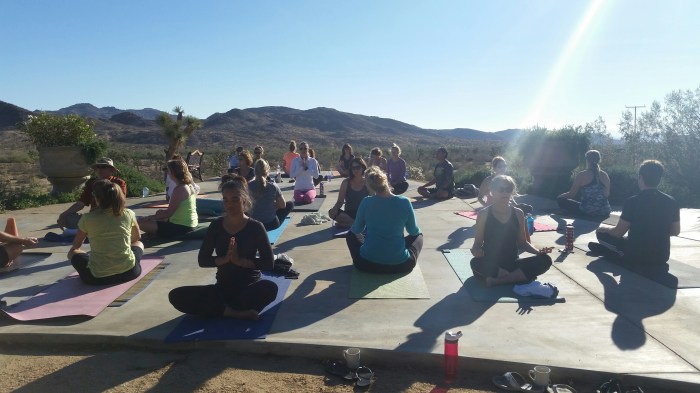
In a world often characterized by constant stimulation and distraction, mindfulness retreats provide a valuable space for reflection and renewal. By incorporating mindfulness practices into your life, you can cultivate a greater sense of peace, clarity, and resilience. Whether you are seeking to manage stress, enhance your focus, or simply deepen your connection with yourself, a mindfulness retreat can be a transformative experience.
Comments are closed.